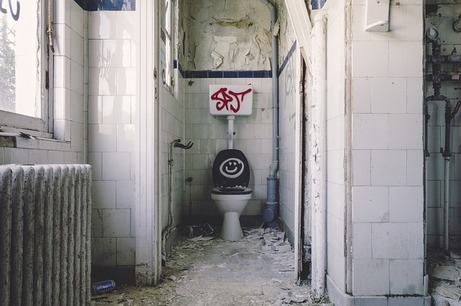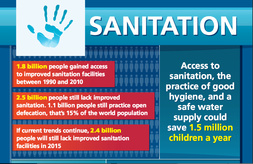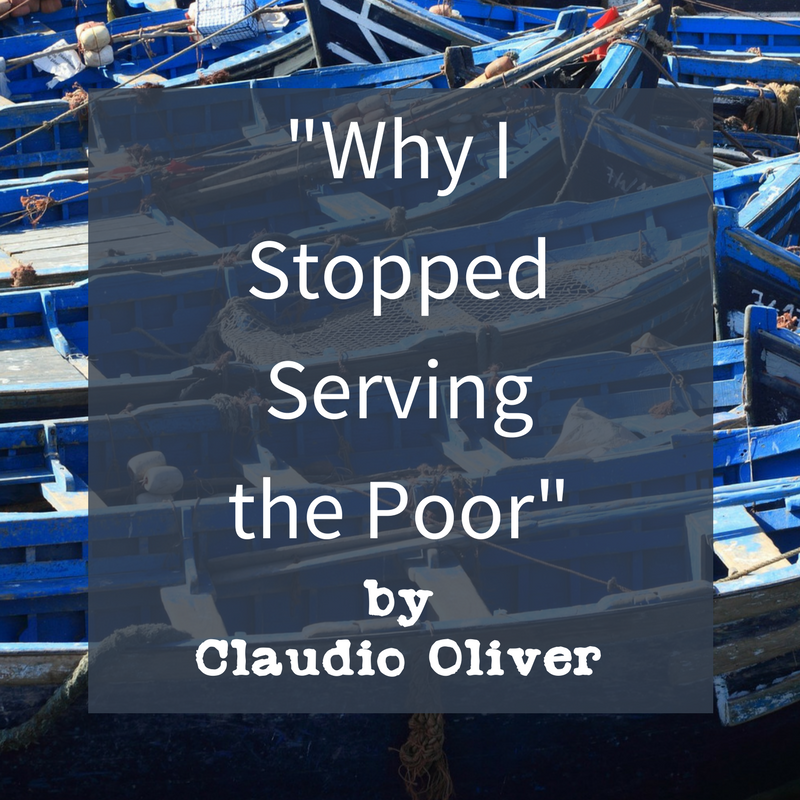 There’s a battle in North Carolina over bathrooms. Yes I wish we were battling something different. I wish we were talking about the decline of public education in our state or the foster care crisis. But we’re not, and so, somewhat reluctantly, I’ve decided to join the battle. But I’m not going to tell you what side I’m on. Yes I’m on a side, but that is not the most important issue. There’s much more at stake to the name of Christianity than we think. And it’s got nothing to do with which side we are battling. Why? Because in any battle that a person has a choice to enter, that person chooses a side based on his interpretation of the battle. The question many are asking is, “Which side is God on?” The answer for many lies in their interpretation of the controversy. One might argue, “God is on the side of biology.” Another might argue, “God is on the side of the marginalized.” When we think of the great battles in history, inherently we might ask ourselves the same thing. Was God on the side of North or the South during the Civil War? For those who interpret the war as only a war of slavery, they might easily come to the conclusion that God was on the side of the North. For those who interpret the war as one of economics or states vs. federal rights, they might say God was on the side of the South. I am not trying to liken the current transgender topic to the Civil War nor do I think it should be likened to eating disorders or race issues. It is what it is, and we have the opportunity once again, in the public sphere to show who Christ is in us. My conclusion might be not be what you want to hear: Your interpretation of the battle doesn’t change the Gospel; while your attitude in the battle showcases your view of the Gospel. Do I think my side is right? Of course I do, but my interpretation of what is right does not define what is right. Only God does such. Which is why my follow-up conclusion is just as important: Regardless of what side we are on, we must maintain a Christ-like posture. I know and admire a lot of strong Christians, some are for the House bill others are against it. Here’s the kicker: The strength of their Christianity is shown not in how loud they scream their opinions, but in how humble their posture is to those on the opposing side—whether other Christians or nonbelievers. If you think transgender people are your enemy, then obey Jesus: pray for them and love them. If you think politicians are your enemy, then obey Jesus: pray for them and love them. If you think conservative Christians are your enemy, then obey Jesus: pray for them and love them. If you think liberal Christians are your enemy, then obey Jesus: pray for them and love them. And I don’t mean a simple mutter, “Oh God, be with them,” or a fanatical shout, “God, show them how evil they are!” I mean really cry out for them. Pray for them like Jesus prayed for us in John 17. Desire to know them better, connect with them, listen to them, walk a mile (or two) in their shoes. Why? Because this is the Christ-like thing to do, and if the name Christian is tainted, then stop being Christian and start being Christ-like. Or rather, start redefining what a Christian is. Treat all human beings with dignity, not just the human beings you agree with. That is what Jesus is saying in Matthew 5. “But I say to you, love your enemies and pray for those who persecute you, so that you may be sons of your Father who is in heaven. For he makes his sun rise on the evil and on the good, and sends rain on the just and on the unjust. For if you love those who love you, what reward do you have? Do not even the tax collectors do the same? And if you greet only your brothers, what more are you doing than others? Do not even the Gentiles do the same? You therefore must be perfect, as your heavenly Father is perfect.” We become sons and we achieve perfection (completion) by our attitudes towards those we struggle against. If this bill is not first something that is introspective for us as Christians, we will not be sanctified through it. It’s the specks in our own eyes we must find first. If you haven’t read House Bill 2, stop voicing your opinion about it. We Christians get up in arms when nonbelievers quote the Bible out of context—okay I also get up in arms when other believers quote scripture out of context too—yet we do the same thing with so many governmental laws. Those of us who live by a sacred text should be wary when anyone uproots words from their context. We know the dangers of this when it comes to our life text. Words have the power of life and death. So read them all. And remember that city, state, and federal laws are made by fallible men, and often passed by lobbyists. I have a minor in Political Science, and in my brief (and now antiquated) knowledge of politics, I walked away knowing one thing: nothing is as it seems. There is a lot of pork and barrel to these bills. Keep that in mind. Surprisingly this bill is about race and religion too. For reals. Ironically, it takes away rights for those who are religiously discriminated against. Finally, Paul’s words should not be our battle cry, but our sobering reminder of life: “For we do not wrestle against flesh and blood, but against the rulers, against the authorities, against the cosmic powers over this present darkness, against the spiritual forces of evil in the heavenly places.” This doesn’t mean that we shout from the rooftops that transgender and LGBT communities are the devil incarnate. What it means is that the devil—who’s main goal is division—is lurking around convincing us that other human beings are demons (it’s called dehumanization and it’s a powerful weapon), and yes, he’s using this verse to do it. Read about Jesus’s temptation in the desert. The enemy knows the Word and twists it. So no, our battle is not against flesh and blood. Please remember that human beings are flesh and blood. The battle is not against other human beings. It’s not against conservative Christians. It’s not against liberal Christians. It’s not a battle that determines if you are one side you are going to heaven and if you are on the other you are going to hell. We are talking to, about, around real human beings with real feelings and real issues. And no, I’m not just referring to transgender people here. I’m referring to all of us. This is not just a battle against the quote unquote marginalized. Because the marginalized change. That’s a term that can refer to any group of human beings. And unfortunately some on the left are marginalizing those on the right with their battle cry “We must help the marginalized.” And unfortunately some on the right are demonizing those on the left crying, “We are on God’s side. If you aren’t for us, you’re against us, and therefore, you're against God.” The Gospel is good news for everyone. When we actively break or harm relationships, we are not doing God's work. May we imitate Christ and his posture regardless of what side of the battle we are on and build bridges rather than bombing them. Bridges between those who believe in the Gospel and those who don't and bridges within us believers. In John 17 Jesus ardently prayers that we will be one. Not so that we can fight on one side of these earthly battles, but so that "the world may know that you sent have sent me," he says in 17:21. If we can unify on nothing else, let us unify in our posture, our attitudes, our behaviors which speak so much louder of the Gospel we desire to proliferate. We do not fight flesh and blood, we fight powers and principalities, and those powers are doing their best to divide, destroy, and conquer, and they are doing that on both sides because, guess what, they transcend physical battle lines. It would do us all good to read The Screwtape Letters and be reminded of the influential subtleties of demonic power. Finally, I leave you with John Piper’s words: “If we give most of our time to bemoaning and criticizing the world for acting like the world, our vision of God and his glorious future for his people will become smaller and smaller, and that could be a greater tragedy than the one we are living in.”
6 Comments
 Taken from: http://www.unwater.org/fileadmin/user_upload/unwater_new/docs/sanitation.pdf Taken from: http://www.unwater.org/fileadmin/user_upload/unwater_new/docs/sanitation.pdf There’s a global water crisis and evangelism would be better off if more Christians paid attention to it. According to UN Water, nearly 3.5 million people die every year due to inadequate water supply, sanitation, and hygiene (WASH). In 2009, the International Institute for Environment and Development (IIED) reported that $360 million USD is wasted “on building boreholes and wells that then become useless because they are not maintained or fixed when they break down. As a result, 50,000 water supply points are not functioning across rural Africa,” according to this article in The Guardian. If you can correlate our spiritual life to the development spectrum, you might see how salvation is our relief and sanctification our development. As you read the following quote by Eugene Cho from his book Overrated, think about that correlation: “While there are few things in development as spectacular as seeing water gush out of the ground after a well is drilled, what happens in year two, five, and ten is far more important, and difficult. By many reports, more than one-third of all wells drilled in the last twenty years are now broken—fifty thousand are currently broken in Africa alone, preventing access to clean water for millions of people. Some experts say as many as 60 percent of wells in the developing world aren’t working. Wells often break within a few years, and in most instances, there are no trained mechanics, spare parts, or tools nearby … or the local community is not invested enough to maintain the well.” In the evangelism realm the quote could read: “While there are few things in our spiritual lives as spectacular as seeing someone get saved, what happens in year two, five, and ten is far more important, and difficult. By many reports, more than one-third of all ‘salvations’ in the last twenty years are now ‘broken’ ... preventing access to living water for millions of people.” In some situations it’s the seed that fell on rocky soil, or among the thorns that can do major damage, because it thinks it knows “that life” and tells others that “that life” was no good, perpetuating a droughtified version of what the Gospel really is. Here’s my point: discipleship, which is what happens in year two, five, and ten, is far more important and more difficult than getting people to raise their hands in an altar call after they’ve mimicked a prayer someone else was praying. Training, teaching, equipping, discipling—these are the development verbs of any human being’s spiritual transformation. It’s not that there are no wells or boreholes. It’s that the ones that are (or were) no longer function as they should. Maintenance, relationship, discipleship are the higher calling. As Bono said, “Justice is a tougher standard than charity.” Justice requires us to see the timeline of other human lives—and recognize that sanctification is not merely a dot on it—not just the timeline of our evangelism project that is merely that, a dot. So be about the Great Commission, not about drive-by salvation. This means going deep right where you are, not waiting to see the mission field until you're "on it" or you're married or you've retired or you've achieved such-and-such-and-such. There are broken wells all over the continent of Africa, and potentially even more right here in the good ole U.S. of A. Let's be about maintenance. Let's be about justice.  To those of you who pay taxes, THANK YOU. Seriously, from the bottom of my heart. I am so very grateful. We have been back in the US now for almost 2.5 years, during which time we have been on Medicaid, WIC (off and on), and EBT (foodstamps). This month will be our last on food stamps, and we found out about a month ago that Andrew and I are no longer eligible for Medicaid (and haven't been since the end of last year). Initially, the hard blow of that news produced anger within me. More than anything I just wish I would have known. I wouldn't have gone to the dentist or the doctor over the past four months. But the more I thought about it, the more I realized that this is an answer to prayer. Of course, it's not how I wanted the answer of prayer to come, but I cannot fault the process when the answer is indeed arriving. I've been crying out to God over the past few months for us to get off of government help, and had no idea that he had already partially answered that prayer. Sure, I wish I would have received the letter our local government said it sent me. Sure, I would have liked Andrew's job to be permanent and have benefits before we got off it. Sure I would have liked to sell a million copies of my book first. Sure [insert excuse]. Sure [insert my plan]. Sure [insert an easier path]. Even though I can't see financial provision in front of me, I keep praying for it, and I keep the faith that these medical and dental bills will get paid. Because my God answers prayers. The past two years have been really hard on us economically. Maybe partially because we believed at least a piece of the lie that America is the "golden land of opportunity" and our return to our home country would result in good-paying jobs that were easy to get because we speak two languages. Partially because we were tempted (and maybe went beyond temptation) to think God's delayed answer meant something it didn't. As Andrew Murray says in Teach Me to Pray: "The great danger in this school of delayed answers is the temptation to think that it may not be God's will after all to give us what we ask. If our prayer is according to God's Word and after the leading of the Spirit, let us not give way to these fears. ....Before the answer can fully come there may be things that have to be put right—in those around us, in humankind as a whole, or in God's government—but the faith that has according to the Word believe that it has received can allow God to take His time." The bigger picture in all of this is multifaceted. First off, the economic state of North Carolina is eye-opening to our personal situation. Charlotte is one of the fastest growing cities (In 2015, depending on what news source you look at it's between 2nd and 6th fastest growing city in the nation). So a little economics 101 will tell us that applying to a job in this area involves being one of hundreds of applicants. And then there's the reality of understanding poverty in the U.S. What used to make me so incredibly uncomfortable: the waiting room of any welfare program, I'm now learning to be more comfortable in. I'm understanding issues many of my peers do not understand at a new level that one day I will use for His glory. When my circle of friends start talking negatively about social welfare, I am learning to speak up and say, "Hey, not everyone is taking advantage of the system!" For some people, crisis is real. And when it hits you—you get angry, frustrated at God, at life, at everyone around you, and eventually/potentially that anger turns into thanksgiving as you realize so many people around the world who are living below the poverty line for their context do not eat nearly as well as we do. My gosh, He has laid out a feast before me, and I complain about how the feast arrived and how I didn't contribute to buying the ingredients for it, and how I hate being a moocher. Newsflash: we're all moochers if we accept the Good News of Jesus Christ. Sometimes God provides in ways I don't like. I have to get over myself and shut up and remind myself of the gospel and how the gospel is in all of these details. I did nothing to accomplish the food I have gained on my table. Yet I have a feast. Either I complain about how it came and how I wish I could do more, or I sit and thank the God who gives and who takes away. So thank you for paying your taxes so I don't have to buy my groceries on a credit card. And thank you US government for these programs that benefit many even if some do take advantage of them. |
Gena's
|

 RSS Feed
RSS Feed

